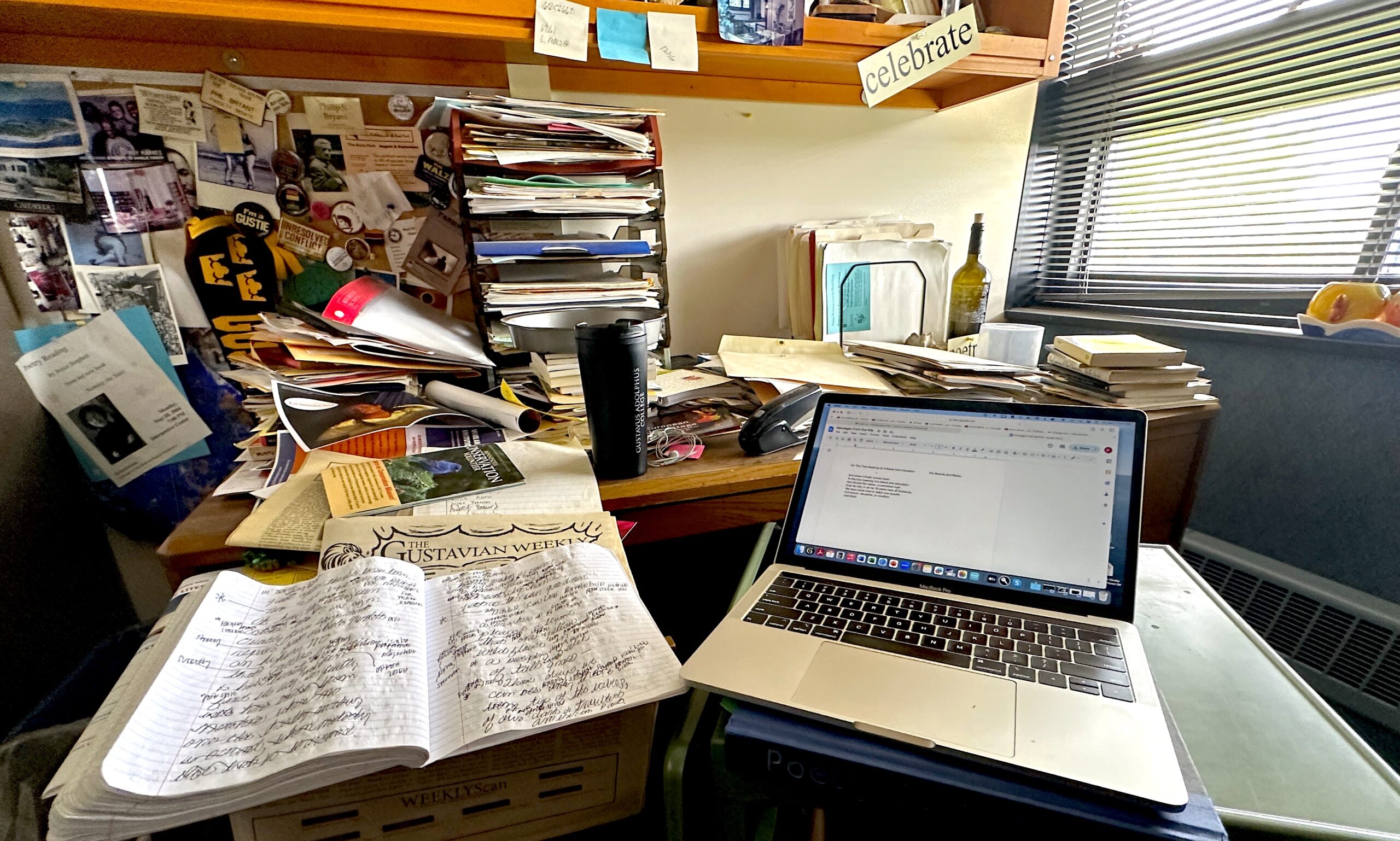On this Juneteenth, the second as an official U.S. holiday, here is a prose poem alum and retiring Gustavus professor Phil Bryant ’73 wrote 10 years ago, before the vast majority of Saint Peter and White America knew what Juneteenth was.
His next book of poetry is forthcoming from Norton sometime next year.
Juneteenth Finally Comes to Saint Peter
Juneteenth of course, will pass quietly and unmarked in Saint Peter like all the rest of the Juneteenths past and present and most likely future, going all the way back to that fateful day in Texas when someone just so happened to let drop the news that the Union forces had finally “drove old Dixie down,” like more than a whole year before, with news then, I guess, traveling slow, and the slaves as a result were, well, free to go. You can imagine the jubilation created by the news of sudden emancipation, so much so that this albeit late arriving proclamation created such a sensation that black Texans have marked the day as their very own 4th of July, Independence Day holiday ever since. But not so here, in fact I’d bet the whole bar at Patrick’s a round of beer, if any of my fellow townspeople had ever heard of Juneteenth, not to speak of them knowing what it actually signifies. So to paraphrase Garrison Keillor I’d say that this Juneteenth would be like any other quiet day in Lake Woebegone. The 19th of June falls this year on a Tuesday that will surely pass like all the other June 19th Tuesdays in southern Minnesota, maybe warm, sunny and clear; the breezy summer air filled with the sweet smell of Daisies and Daffodils, still in bloom, no big parades, speeches by local politicians or barbeques, just me maybe, waiting at the checkout line at the Econo Foods with one of the three other African-Americans in town with me suddenly blurting out to her loudly, “Happy Juneteenth, baby!” and she turning and smiling, knowing enough of our sad troubled history to know what I meant and without a doubt, she returns a happy Juneteenth to me, just as loud. As our other fellow townspeople in line with us now look so curious, totally lost and in the dark, wondering what the hell this Juneteenth business is all about.
—2014
1. How did this poem come about?
I call it one of my “homer” poems, my townie poems. When I wrote it, I was noticing more people of color, more Black people, in this town, not associated with the college. How would Juneteenth look in Saint Peter?
My DNA is Chicago, but I have been in Saint Peter for 35 years. Back then, I’m sure I was one of about three people in the whole town that knew anything about it, and that’s including my wife, Renee [Reek Bryant ’73]!
I mean, wow, man. Should I write poems about Saint Peter? Can I? Am I allowed? I gave myself permission to venture into that.
2. Why did you feel the need to give yourself permission to write this poem?
It’s an interesting perspective to have, being an outsider-insider. There’s both assimilation and isolation going on. I feel isolated [as an African American man], but also assimilated since I’ve lived here for so long, gone through blizzards and tornadoes and MAGA and all that sh*t.
I mean, people still come up to me and ask, “How long have you been here?” And I say, “As long as you’ve been born, and longer!”
I don’t think people really expect Black people to write about White spaces like this. Is this a White space because I live here? Our kids went to school here, they have friends here, they were raised here, they have roots here. They are Saint Peter-ites.
In my latest book there will be more poems about Saint Peter.
3. What do you think when you read this poem today?
I’m very basic, you know? I’m a worker poet. I know what works and what doesn’t work. I’m not going for a message. It came in a sentence or two, a phrase, I don’t sit down and say, “I’m going to write this.” My poems are all food for thought.
Poetry, for me is about that. It’s engagement. I’m not trying to sell this to you. These are just things you can hopefully read and get something out of it, engage your thought processers and that’s it.
I think it still works, and I think it’s kind of funny.
4. How will you celebrate Juneteenth?
We’ve usually had quiet celebrations. We always play Black music in our household. We’ll do something close to what we do on the Fourth of July—quietly tip our mugs to the ancestors.
5. Do you think anyone will wish you a happy Juneteenth?
That’s stretching it, unless it’s a friend of mine. I still think people don’t know what Juneteenth is. It’s like, “Oh, we have the day off? Great.” I don’t think White people will necessarily think too deeply about it. They don’t think Black history really affects them. Because it’s Black, you know? But if there was no Black history, there would be no American history. When you ban Black history, you’re amputating both legs, both arms. I mean, what do you have left?
Now that Juneteenth as a national holiday, maybe I can have that now. Maybe one of my fellow townspeople who is not of the African American persuasion might wish me a happy Juneteenth. And that is all good.

Leave a Reply
You must be logged in to post a comment.